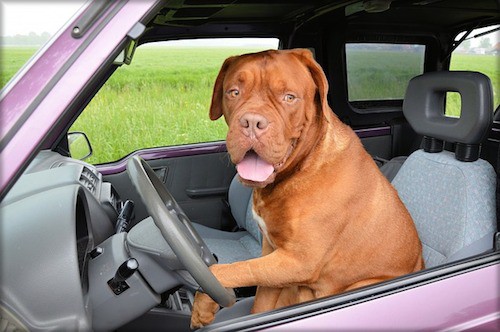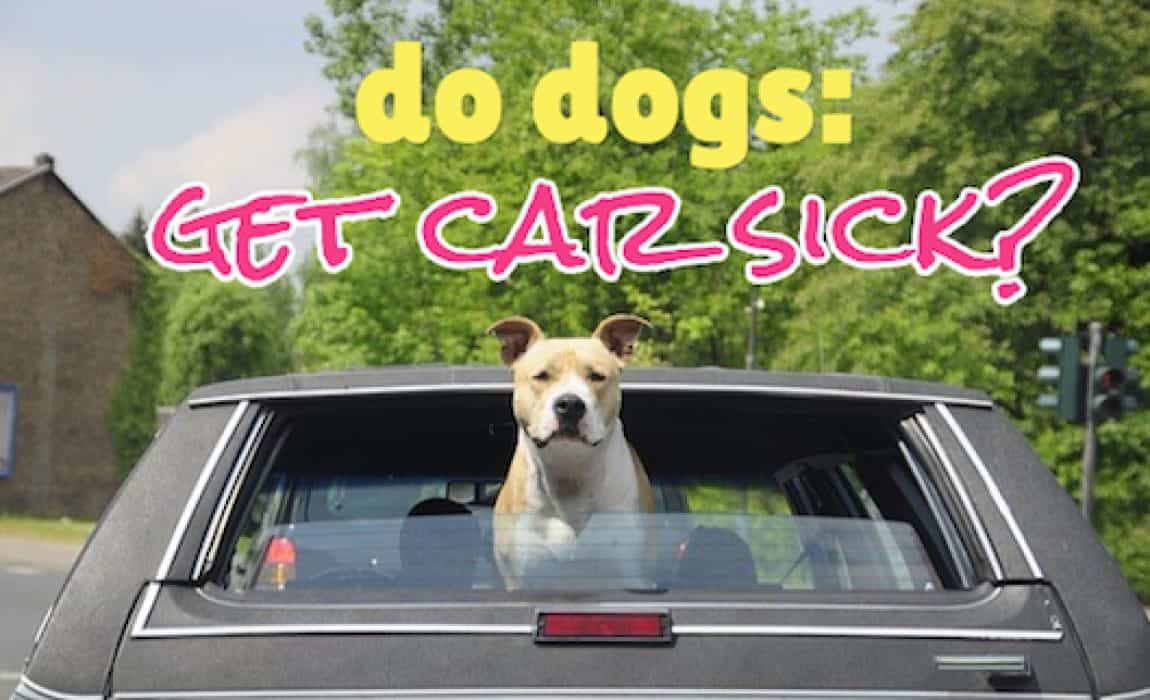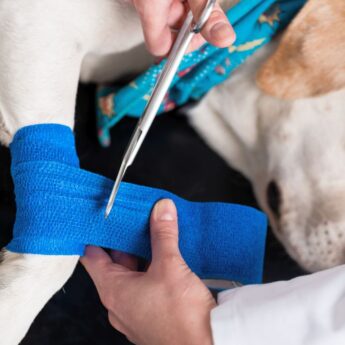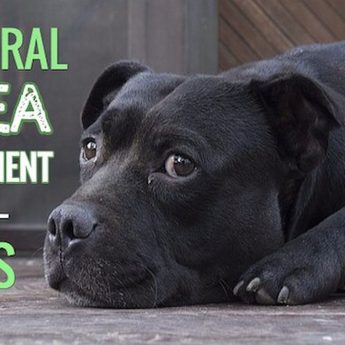Many people are surprised to find out that yes — dogs do in fact get car sick, just like some people do!
We’ll explain everything you need to know about car sickness in dogs — including a few of the things you can to do prevent it — below!
Why Do Dogs Get Car Sick?
Dogs most often deal with motion sickness when they are puppies or young dogs.
Young dogs can experience motion sickness due to the fact that their ear structures (and therefore, their equilibrium) are still developing. In fact, this is the same reason why human children often experience motion sickness more often than adults do.
In many cases, dog car sickness will fade away a bit as a dog ages, and dogs often grow out of it completely.
However, in some cases even adult dogs will suffer from motion sickness — but it often occurs for different reasons.
With adult dogs, car sickness is often the result of stress and anxiety rather than the actual motion. Often, this anxiety is caused by earlier car trips, when the dog actually became car sick.
In these situations, the most important thing you can do for your dog is to make the travel experience fun and positive.

Another reason dogs often suffer from car sickness is that their brains get confused. Their eyes are looking around at the interior of the car (which isn’t moving), while their inner ear and sense of balance tell them that they are, in fact, moving!
Their brains can actually interpret this paradox as the result of a toxin or poison. This makes the brain hit the “barf button,” to get rid of anything potentially dangerous in their stomachs.
The best way to address this issue is to let your doggo look out the window while riding (you may have to elevate him a bit to do so).
This way, he can not only feel the movement of the car, but his eyes will confirm that the car is moving. This will help prevent his brain from panicking and triggering him to vomit.
Strategies for Reducing Car Travel Stress in Dogs
When anxiety and stress are potentially causing your dog to get car sick, re-introduce your doggo to the car slowly and turn the car riding experience into something positive.
You may want to use a few of these strategies to help:
- Take Things Slowly. Take your time getting your dog accustomed to car travel. At first, simply bring your dog into the car (without the motor running) and give him plenty of praise and treats. Slowly ramp up the amount of time you let him hang out in the car, then try it with the motor on, and finally, go for a very short 5 to 10 minute ride.
- Create Positive Car Experiences. Take your dog to fun spots like the park, beach, or pet store, where you can play and create a positive car ride connection. Before long, he’ll start equating the car with fun stuff, which will reduce his anxiety.
- Use Toys and Treats. Use treats to reward and distract your pooch in the car. You may also want to provide your dog with a favorite toy (a peanut-butter-filled KONG is ideal) to keep him occupied and happy while in the vehicle.
Symptoms of Dog Car Sickness
Car sickness can manifest in several ways, so it is important to familiarize yourself with some of the most common symptoms. Some signs that your dog could be car sick include:
- Vomiting
- Excessive drooling
- Excessive yawning
- Immobility (not moving)
- Excessive lip licking
- Continuos whining
Treatments For Dog Car Sickness
Aside from reducing your dog’s anxiety surrounding the car, there are a few other things you can do. Some of the additional ways you can treat dog car sickness include:
- Withhold food before car trips. Avoid giving your dog food prior to your car ride. This can help prevent your dog from feeling sick.
- Roll the windows down. Rolling your car windows partially down can improve ventilation and make your dog more comfortable. It’ll also let lots of interesting smells inside, which can help distract him.
- Use a dog booster seat. For small dogs, you may want to consider using a dog booster seat. This will give your dog a better view of the scenery outside, providing a better sense of balance and helping to prevent equilibrium issues.
- Consider a dog seat belt. Another solution is to purchase a dog seat belt attached to a harness which can keep your dog facing forward (note that facing forward is often helpful for humans who suffer from car sickness too!) A dog car crate may also help with car sickness, in addition to keeping you pooch safe on the road.
- Keep the car cool. Keeping your car at cooler temperatures can also help prevent canine car sickness, so crank that AC!
- Try natural remedies. Some dog motion sickness natural remedies include ginger, valerian root, peppermint, or Adaptil diffusers. There’s not much empirical evidence demonstrating that these work, but some owners feel they help to settle their dog’s stomach. Just be sure to check with your vet first before giving your dog any supplements.
Drugs For Dog Motion & Car Sickness
In some extreme cases (and on very long trips) it may be necessary to give your carsick dog an over-the-counter medication to help keep him from barfing.
Cerenia (maropitant citrate) is an anti-nausea and anti-emetic medication approved for use in dogs, but some vets may recommend off-label drugs, such as Benadryl (diphenhydramine) or Dramamine (dimenhydrinate). However, both of these drugs are likely to make your dog quite drowsy.
But before considering any drugs, always consult your vet. These drugs aren’t safe for all dogs, and they may interact with other medications your dog is taking. Plus, you’ll need your vet to recommend an appropriate dosage anyway, so just pick up the phone.
It’s also worth visiting the vet if your dog continues to show signs of carsickness, as there’s always the potential for other medical issues could be at play.
***
Does your doggo get sick anytime you hop in the car? Do you have any tips for dealing with doggie car sickness? Share your suggestions in the comments!









4 Comments
March 15, 2016
OUR TOY POODLE (8 MONTHS) GETS QUITE CAR SICK. THE ONLY THING THAT SEEMS TO CALM HIM DOWN IS THE PERSON IN THE PASSENGER SEAT HOLDing AND PETTING HIM. AND EVEN THEN HE SHAKES AND IS QUITE NERVOUS. HE REFUSES TO RIDE IN HIS CAR SEAT. WHAT ARE THE CHANCES OF HIM OUT-GROWING MOTION/CARSICKNESS? HOLLY SANSONE [email protected]
March 17, 2016
Considering how young he is, there is a decent chance he will grow out of it. However, for the meantime, if he’s that uncomfortable in the car and not enjoying it, it may be best to simply leave him at home and try car rides more when he is older. Best of luck Holly!
November 7, 2015
We’ve been really lucky with Haley not getting sick on car rides. She travels a lot with us and is such a good traveler. These are excellent tips for those pups that do feel sick from the motion of traveling in a vehicle. Great post and super tips! 🙂
November 7, 2015
Thanks Elaine! Good thing Haley travels well – it’s so stressful having a travel-sick pet!